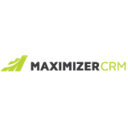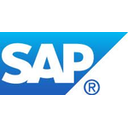Maximizing Your Sales with B2B CRM: The Key to Success
Working in Business-to-Business (B2B) sales is vastly different from working in Business-to-Customer (B2C) sales but Customer Relationship Management (CRM) is still a significant part of the process. Let’s talk about some benefits of using CRM software in B2B sales and compare popular CRM products.
What is B2B CRM and how is it different from B2C CRM?
Business-to-Business Customer Relationship Management is the technology that one uses to support communication with clients who are also businesses themselves.
While B2C companies focus on repeat purchases, B2B companies usually have higher ROIs from individual purchases.
The largest difference between B2B and B2C sales, outside of the target client, is the length of the sales cycle. B2C sales plans tend to be relatively quick so these CRM products will have stronger contact management functions. B2B sales tend to take months and often include buying groups of six to ten people so these CRM products need to be able to track the progress of each deal and have strong account management tools.
B2B companies also work with multiple partners like vendors, resellers, and affiliate companies. The CRM systems need to be able to account for these various pipelines with different pricing.
Benefits of B2B CRM
B2B CRM software will help you create and analyze strategic marketing campaigns that fit a longer and more complex sales cycle. These campaigns are targeted and personalized to attract the best leads.
CRM manages all client information and collects it all in one place so that you always know with whom you’re speaking within the company, their job title, their concerns, and how frequently your team members have spoken to them.
Certain communications and reports can be automated within B2B CRM software, leaving the sales team more time to focus on closing the deal.
The CRM aligns sales and marketing teams to boost sales conversions and track the effectiveness of marketing campaigns at any stage.
CRM Comparison
Below, we take a look at popular CRM products that have been proven to work well in the B2B context. We lay out their main features, some pros & cons, and give you a glimpse of the interface.
Salesforce
Sales Cloud is good for larger companies and enterprises. It is a cloud-based CRM software created by Salesforce that has both desktop and mobile app functions. It offers features such as:
- Account and contact management
- Customer journey management
- Partner management
- Lead and opportunity management
- Reports and dashboards
- Workflow and Automation
- Pipeline management
- Sales forecasting
- Omni-channel outreach
Pros:
- Integrates well with third-party software
- All-in-one capabilities support sales and service teams
Cons:
- complicated user interface
- Bulk/mass contact or type changes are difficult
Salesforce CRM is an incredibly useful tool for managing customer relationships and improving sales performance. With its intuitive interface, it is easy to navigate and customize to meet my specific needs. The platform's range of features, including lead management, opportunity tracking, and reporting, helps to streamline sales processes and gain valuable insights into customer behavior.
Additionally, the ability to access the platform from anywhere, thanks to its cloud-based technology, is a game-changer in terms of flexibility and efficiency. While it can take some time to get familiar with the platform, the benefits of using Salesforce CRM is definitely worth it in terms of improving sales performance and overall productivity.
HubSpot
HubSpot tends to work best with small to mid-size companies. HubSpot offers a deconstructed version of the CRM software so that you can choose the services that you need. Each Hub has its own features.
- Marketing Hub
- Lead generation
- Marketing automation
- Analytics
- Sales Hub
- Advanced CRM
- Meeting scheduling
- Payments
- Service Hub
- Support tickets
- Customer feedback
- Knowledge base
- CMS Hub
- SEO recommendations
- Website themes
- Operations Hub
- Data sync
- Programmable automation
- Data quality automation
Pros:
- Easy integration with third-party apps
- Users can track a variety of use cases
Cons:
- Complicated user interface
- Synchronization needs to be improved
HubSpot is an exceptional CRM tool that offers a range of features that help manage customer relationships efficiently. Its user-friendly interface is easy to navigate, and the platform's drag-and-drop features make it straightforward to customize and tailor the system to meet my specific business needs. HubSpot offers a range of sales and marketing automation tools that helps you streamline your processes and optimize lead generation.
Additionally, the platform's reporting and analytics features allows you to track your progress and gain insights into customer behavior, which helps to make informed business decisions. The mobile app is also a great feature, as it enables you to stay connected and access data on-the-go.
Overall, HubSpot is a valuable asset providing the tools you need to manage your customer relationships effectively and improve your sales performance.
Maximizer
Maximizer tends to work best with small to mid-size companies. It is a cloud-based CRM that has been on the market for over 3 decades. It offers features such as:
- Contact management
- Leads management
- Business Analytics
- Market segmentation
- Webform building
Pros:
- Highly customizable
- Strong, friendly support team
Cons:
- User interface can be “a bit clunky”
- Product can glitch, reverting customized tasks to the base format
Maximizer CRM is a comprehensive tool for managing customer relationships that provides a range of features to help businesses improve their sales and customer service efforts. Its user-friendly interface allows users to easily navigate and customize the platform to meet their specific business needs. The system's lead management and opportunity tracking features enable businesses to streamline their sales processes and gain valuable insights into customer behavior.
Additionally, Maximizer's reporting and analytics capabilities provide users with in-depth data on their sales performance and customer engagement, allowing them to make informed decisions to optimize their business operations. The platform's mobile app ensures that users can access information from anywhere, making it easy to stay connected and engaged with customers.
Overall, Maximizer CRM is a valuable asset for any business looking to improve their customer relationship management and sales performance.

Maximizer CRM Wealth Manager
Act!
Act! Is a CRM product geared towards small and midsize businesses that offers both CRM and marketing automation. It offers both desktop and cloud products. Their key features are:
- Customer management
- Relationship history
- Information search
- Centralized customer data
- Offline and mobile access
- Marketing automation
- Personalized campaigns
- Landing pages
- Automated workflows
- Real-time metrics
- Sales pipeline management
- Opportunity tracking
- Sales process management
- Pipeline management
- Actionable insights
- Activity management
- Customer activities
- Calendar and email integration
- Prioritized task lists
- Notifications and alerts
Act lets users integrate with Outlook and create their own customized processes.
Pros:
- Straightforward and intuitive tools and interface
- Easy to integrate third-party apps
Cons:
- Can glitch and create duplicate entries which are then difficult to remove
- Reviewers suggest cloud-based data security could be stronger
Act! CRM is a comprehensive customer relationship management software that helps businesses manage and grow their customer base. It offers a user-friendly interface, powerful contact management features, and easy-to-use marketing automation tools. Act! CRM allows users to track leads, manage contacts, and automate personalized email campaigns to engage with customers effectively.
Its integration with popular business applications like Microsoft Outlook and Google G Suite makes it an efficient tool for small to medium-sized businesses. However, the software lacks some advanced features compared to its competitors, and its pricing plans can be steep for businesses on a budget.
Overall, Act! CRM is a solid choice for businesses looking for a reliable CRM solution with basic features.
ClickUp
ClickUp works largely with smaller and mid-market businesses. Clickup is a highly organized person’s dream. It provides the “Everything view” that shows every task at every level of your organization, with options to filter, sort, search, and save anything you need. It also offers folders, checklists, customizable tasks, and nested subtasks to make sure that everything is easy to find and follow. It provides 15 different view screens to allow you to focus on each level of your project. It includes features such as:
- Contact management
- Team management
- Pre-built and custom automation
- Templates
- Reports and dashboards
- Goal tracking and analytics
- Time tracking, estimates, and reporting
- Task management
Pros:
- Intuitive user interface
- Technical support is quick and efficient
Cons:
- Can occasionally have slow load times
- Mobile versions are slightly less functional than web version
ClickUp CRM is a feature-rich customer relationship management software that offers an intuitive interface and a customizable workflow for managing customer interactions. Its robust automation features help businesses save time by automating repetitive tasks and streamlining their workflows.
ClickUp CRM allows users to track leads, manage contacts, and collaborate with team members seamlessly. Its integration with third-party applications like Zapier and Slack makes it a versatile tool for businesses of all sizes. However, its pricing plans can be expensive, and its learning curve may be steep for some users.
Overall, ClickUp CRM is a powerful tool for businesses that value flexibility and automation in their CRM solution.

ClickUp
Freshsales
Freshsales works mostly in the small- to mid-size business sector. It is a full-fledged sales force automation solution for sales teams. Its proprietary AI, Freddy, gives salespeople insights into the best deals to go after and what actions to take and predict revenue. It includes features like:
- Lead management
- Omni-channel communication
- Sales automation
- Marketing automation
- Sales forecasting
- In-depth analytics
- Multiple pipeline management
- Territory management
- CPQ – quote generation and sharing
- Enhanced security with role definition and permissions
Pros:
- User interface is simple and intuitive
- Wide range of features available
Cons:
- Not as highly customizable
- Fewer integrations possible than other CRMs
Freshsales CRM is a robust and easy-to-use customer relationship management software that offers powerful features to help businesses manage their sales and customer interactions. It provides a user-friendly interface, with customizable dashboards and reports to provide insights into the sales pipeline.
Freshsales CRM allows users to manage leads, track deals, and automate sales workflows, making it a great solution for small and medium-sized businesses. Its integration with popular business applications like G Suite and Zapier makes it an efficient tool for managing customer interactions. However, its advanced features such as predictive lead scoring and advanced reporting are only available on its higher-priced plans.
Overall, Freshsales CRM is a great choice for businesses looking for an affordable and user-friendly CRM solution.

Freshsales
SAP CRM
SAP CRM works well for mid-market to large-scale enterprises. It is divided into individual solutions products.
The Customer Data solution includes customer identity and access management, data privacy, and customer data platform solutions.
The Sales solution helps you understand and engage your customers, retain customers, and refine your sales process.
The Service solution communicates with your customers across all platforms, helps you diagnose and resolve issues, and protects your brand.
The Marketing solution automates your marketing campaigns and helps you execute them on a global scale.
It offers features like:
- Customer identity and access management
- Enhanced data privacy
- Advanced sales analytics
- Omni-channel communication
- Marketing automation
- AI segmentation
Pros:
- Well-structured interface with overview function
- Smooth and fully automated data flow
Cons:
- Runs more slowly than would be expected
- High cost makes it unsuitable for smaller businesses
SAP CRM is an enterprise-level customer relationship management software that offers a robust set of features to manage sales, marketing, and customer service processes. Its powerful analytics tools provide insights into customer behavior, enabling businesses to improve their customer engagement strategies. SAP CRM's seamless integration with other SAP applications makes it a comprehensive solution for businesses with complex operational requirements.
However, its steep learning curve and high implementation costs may make it less accessible for small to medium-sized businesses. Additionally, some users have reported that its user interface can be challenging to navigate.
Overall, SAP CRM is an excellent choice for larger businesses with complex operational needs and a budget for implementation and ongoing support.

SAP CRM
Sugar CRM
SugarCRM works mostly with mid-market businesses and some small businesses. Sugar Sell CRM has multiple product options including:
Market, which provides marketing automation to align with sales and build the right pipeline,
Sales, which provides sales automation to accelerate your sales cycle,
Serve, which boosts customer service experiences, and
Enterprise, which provides on-site CRM so that businesses have maximum control.
While the individual products operate in the cloud, the Enterprise product is an on-site CRM solution that gives businesses full control over their technology and privacy with high customization options. It has features like:
- Contact management
- Pipeline management
- Sales automation
- Marketing automation
- Sales forecasting
- AI analytics
- Omni-channel communication
- Customer journey mapping
Pros:
- Highly transparent customer sales journey
- ”No coding needed” automation
Cons:
- Complicated user interface
- Some obsolete modules and tools remain from previous versions.
Sugar Sell CRM is a powerful tool for managing customer relationships that offers a range of features to help businesses improve their sales performance. Its user-friendly interface makes it easy to navigate and customize, allowing users to tailor the platform to meet their specific business needs. The system's lead management and opportunity tracking features help businesses streamline their sales processes and gain valuable insights into customer behavior.
Additionally, Sugar Sell CRM offers a range of communication tools, including email and phone integration, to help users stay connected with their customers. The platform's reporting and analytics capabilities provide users with in-depth data on their sales performance and customer engagement, allowing them to make informed decisions to optimize their business operations. The mobile app ensures that users can access information from anywhere, making it easy to stay connected and engaged with customers.
Overall, Sugar Sell CRM is a valuable tool for any business looking to improve their customer relationship management and sales performance.

SugarCRM
Zoho CRM
Zoho CRM works mostly with small businesses and some mid-size and large enterprises and it offers two systems to cater to their different needs: one for solo entrepreneurs and micro businesses and the other for mid-to large-scale businesses. Both systems offer desktop and mobile services.
The Bigin small business system offers features such as:
- Contact management
- Prospect engagement
- Pipeline management
- Data management and security
The Zoho enterprise version offers a host of features such as:
- Contact management
- Sales force automation
- Canvas design studio
- Process management
- Pipeline management
- Multichannel communication
- Reporting and analytics
- Sales forecasting
- Team collaboration
Pros:
- Integrates well with other Zoho products
- All-in-one sales and marketing platform
Cons:
- Limited range integration with third-party apps
- Occasionally runs slowly
Zoho CRM is a cloud-based software suite that offers a wide range of business applications, including project management, accounting, HR, and more. With its robust features and affordable pricing, Zoho is an excellent option for small and medium-sized businesses looking to streamline their operations.
One of the best things about Zoho is its user-friendly interface, which makes it easy for even non-technical users to navigate and use. Additionally, Zoho's customer support team is responsive and helpful, ensuring that users can quickly resolve any issues they may encounter.
Overall, Zoho is a powerful and versatile software suite that can help businesses of all sizes improve their efficiency and productivity. With its extensive features and affordable pricing, it's definitely worth considering for any organization looking to streamline their operations.

Zoho CRM
Pipedrive
Pipedrive works largely with small and mid-size businesses. It has a simple yet powerful design that prioritizes usability above all else. Pipedrive CRM has a highly customizable interface that makes it easy to learn quickly. It offers desktop and mobile functions and is highly visual. Most features are available from the base subscription and they offer over 300 integration options such as Zoom, Asana, Slack, Gmail, QuickBooks, and more. Some of those features include:
- Contact management
- Visual and customizable sales pipeline
- Team collaboration and reminders
- Segmenting leads
- Reporting and dashboards
- Web forms
- Sales forecasting
Pros:
- Users can create multiple pipelines to track different buyer journeys
- Strong inbound and outbound lead management
Cons:
- System updates sometimes lead to glitches
- Weak lead filtration leading to difficult organization
Pipedrive is a powerful CRM tool that has gained widespread popularity for its ease of use and intuitive design. It's a cloud-based software that allows businesses to track and manage their sales pipeline, automate repetitive tasks, and analyze their sales data to make informed decisions.
One of the standout features of Pipedrive is its visual pipeline, which provides a clear and easy-to-understand view of the sales process. It's also highly customizable, allowing users to tailor the software to their specific business needs.
Pipedrive's customer support team is another area where the software excels. They offer prompt and helpful assistance, ensuring that users can quickly resolve any issues they may encounter.
Overall, Pipedrive is a top choice for businesses looking to streamline their sales processes and improve their efficiency. Its user-friendly interface, customizable features, and excellent customer support make it an excellent option for organizations of all sizes.
Copper CRM
Copper CRM works mostly with small and mid-size businesses. Copper is partnered with Google Workspace, so it logs all your emails and other interactions to the right contact for you. It also works like Google products so it is intuitive for most users. It also integrates with many other third-party apps. Copper includes features like:
- Contact management
- Team communication
- Pipeline and opportunity management
- Automated tasks and reminders
- Reports and dashboards
- Project management
- Mobile app
Pros:
- Simple and automatic lead management
- Integrates well with Google products
Cons:
- Search function is not always clear
- Team member transitions can cause data loss
Copper CRM, formerly known as ProsperWorks, is a cloud-based CRM tool that offers a wide range of features to help businesses manage their sales pipeline, automate tasks, and analyze data to make informed decisions.
One of the standout features of Copper CRM is its tight integration with G Suite, which allows users to access their email, calendar, and other G Suite apps directly from the CRM. This integration makes it easy to manage all aspects of the sales process without switching between multiple applications.
Copper CRM's user interface is also highly intuitive and easy to navigate, making it a great choice for businesses that don't have dedicated IT staff. The software is highly customizable, allowing users to tailor it to their specific needs and workflows.
Finally, Copper CRM's customer support team is responsive and knowledgeable, ensuring that users can quickly resolve any issues they may encounter.
Overall, Copper CRM is an excellent choice for businesses that rely heavily on G Suite and are looking for a powerful, user-friendly CRM tool that can help them streamline their sales processes and improve their productivity.

Copper CRM
Wrap up
B2B sales have a lot in common with B2C sales at the core, but to effectively target, market towards, and communicate with B2B clients, you need a CRM that works for you. This CRM must take into account your customer journey, it should allow you to communicate with your clients no matter the channel, it should allow you to automate your marketing and sales workflows, and it should help you perform detailed analyses of your sales and marketing performance.
By comparing features, interfaces and pricing (some being free) of different CRM products, you will be able to choose the product to help your company climb to new heights.